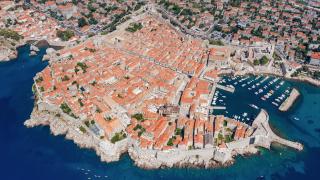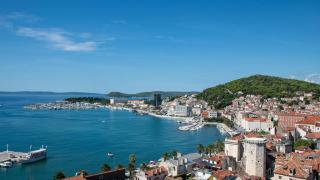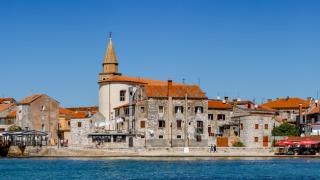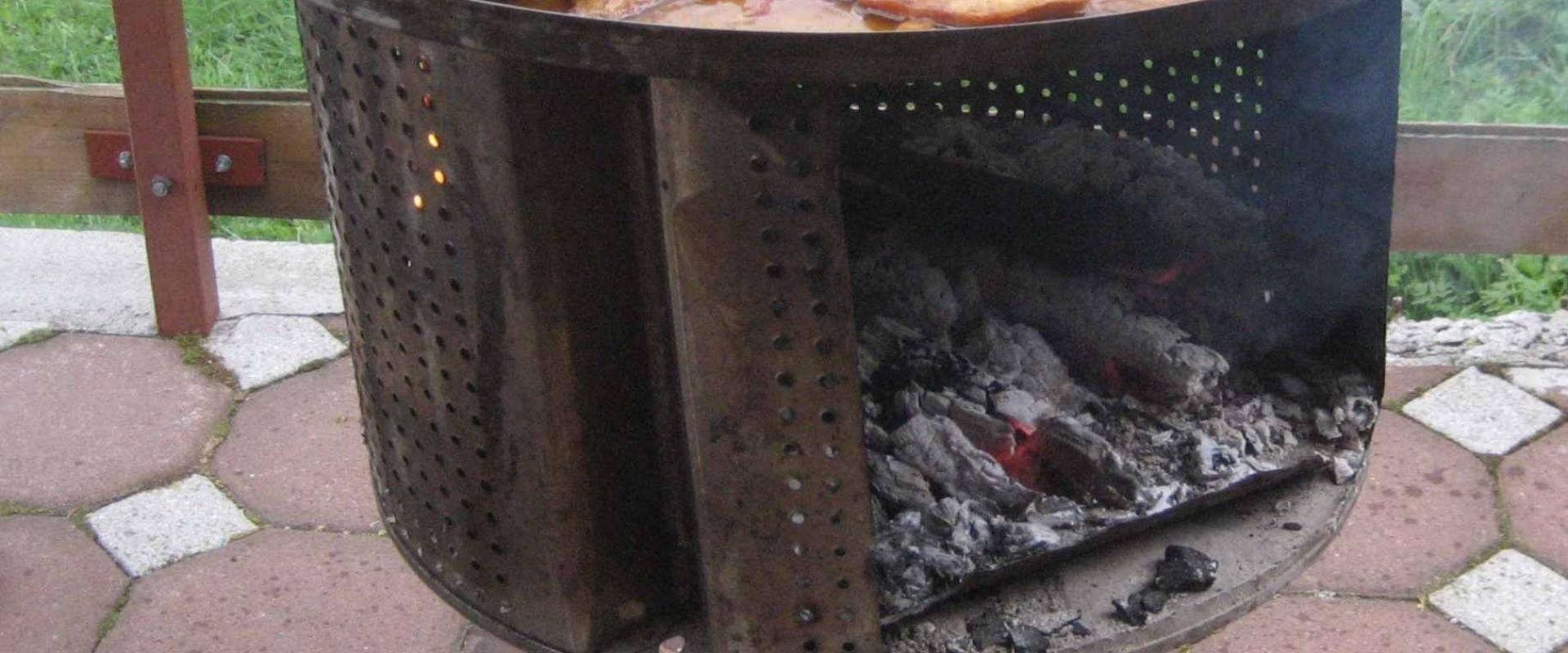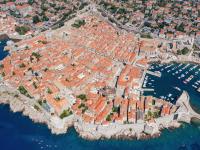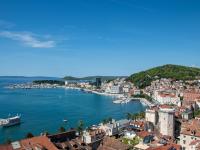Introduction
Croatian traditional food represents centuries of culinary heritage shaped by diverse regional influences. The cuisine varies distinctly between coastal and inland regions, each with unique preparation methods and ingredients.
Along the Adriatic coast, Mediterranean flavors dominate with:
- Fresh seafood and fish dishes
- Olive oil-based preparations
- Herbs like rosemary and sage
Inland regions showcase:
- Hearty meat stews
- Austro-Hungarian influenced dishes
- Ottoman-inspired specialties
Traditional meals are typically served in konobas (local taverns) and family-run restaurants. A typical Croatian dining experience lasts 1.5 to 2 hours, emphasizing slow food preparation and social connection.
Signature cooking methods include peka - food slow-cooked under hot embers for 2-3 hours. Each region proudly maintains its authentic recipes, passed down through generations, making food an integral part of Croatian cultural identity.
Coastal Specialties
Croatia's Adriatic coast offers distinctive Mediterranean-influenced seafood dishes prepared with local ingredients. Fresh fish is typically grilled whole with olive oil, garlic, and local herbs like rosemary and sage.
Black Risotto (Crni rižot)
- Made with cuttlefish or squid ink
- Cooked with white wine, garlic, and parsley
- Served in portions of 300-400g
- Average price: 80-120 kuna per serving
Popular Coastal Dishes
- Brodet - fish stew with multiple types of seafood
- Škampi na buzaru - scampi in wine and garlic sauce
- Grilled sardines with Swiss chard (blitva)
- Octopus salad with olive oil and capers
Seasonal Specialties
- Spring: Fresh sardines and anchovies
- Summer: Grilled tuna and sea bass
- Autumn: Mussels and oysters
- Winter: Salt cod (bakalar)
Traditional konobas (family-run taverns) serve these dishes using recipes passed down through generations. Notable establishments include:
- Konoba Fetivi (Split) - Famous for black risotto
- Restaurant Proto (Dubrovnik) - Historic seafood restaurant since 1886
- Konoba Batelina (Pula) - Specializes in lesser-known local fish species
Continental Cuisine
Inland Croatian cuisine features hearty meat-based dishes influenced by Austro-Hungarian culinary traditions. Sarma, cabbage rolls stuffed with minced meat and rice, remains a winter staple costing 45-60 kuna per serving.
Traditional preparation methods include:
- Slow-cooking in clay pots (3-4 hours)
- Smoking meats over beech wood
- Fermentation for preservation
Zagorski Štrukli, a cheese-filled pastry from the Zagorje region, requires hand-stretched dough and aged cottage cheese. Local restaurants serve both sweet and savory versions for 35-50 kuna.
Signature continental dishes include:
- Kotlovina - meat and vegetable stew cooked in large cauldrons
- Mlinci - baked noodles served with roasted duck or turkey
- Špek-fileki - tripe stew with smoked bacon
Seasonal ingredients define inland cooking:
- Spring: Wild mushrooms, nettles, young garlic
- Summer: Fresh vegetables, berries
- Autumn: Pumpkins, chestnuts, quince
- Winter: Preserved meats, sauerkraut, dried beans
Traditional spices include ground red paprika, bay leaves, and caraway seeds. Home cooks still preserve vegetables through pickling and prepare winter stores of ajngemahtec (chicken soup) and čvarci (pork cracklings).
Essential Dishes
Peka stands as Croatia's signature dish, slow-cooked under an iron bell with hot coals. Preparation takes 2-3 hours, typically costing 150-200 kuna per person.
Traditional pastries include:
- Burek - Flaky phyllo pastry with meat or cheese (15-25 kuna)
- Strukli - Cheese-filled dough rolls served baked or boiled (30-45 kuna)
Croatian cheese varieties showcase regional specialties:
- Paški Sir from Pag Island, aged 6-12 months (180-250 kuna/kg)
- Škripavac fresh cheese from Lika region (80-120 kuna/kg)
Popular street food options include:
- Čevapi - Grilled meat fingers with flatbread (35-50 kuna)
- Fritule - Sweet fried dough balls with raisins (10-15 kuna)
Traditional desserts feature:
- Kremšnita - Vanilla and custard cream cake (20-30 kuna)
- Rožata - Dalmatian crème caramel with rose liqueur (25-35 kuna)
Most traditional dishes require advance ordering at konobas (traditional restaurants), particularly for peka.
Dining Customs
Most Croatian restaurants serve meals between 12:00-15:00 for lunch and 18:00-22:00 for dinner. Reservations are recommended, especially in tourist areas.
Common dining etiquette:
- Wait for the host to say "Dobar tek" (enjoy your meal) before eating
- Keep hands visible on the table, not in your lap
- Finish everything on your plate to show appreciation
Tipping guidelines:
- Service charge is rarely included
- 10-15% is standard for good service
- Round up taxi fares to the nearest 10 kuna
Useful phrases for ordering:
- "Mogu li dobiti jelovnik?" (Can I have the menu?)
- "Račun, molim" (Bill, please)
Dietary considerations:
- Vegetarian options are limited in traditional restaurants
- Seafood allergies should be communicated as "alergičan sam na morske plodove"
- Gluten-free items are marked as "bez glutena"
Most traditional restaurants (konobe) expect cash payment. Credit cards are widely accepted in urban establishments.
Practical Tips
Book food experiences during harvest festivals in September-October for authentic traditional dishes. Major food events include:
- Zagreb Food Festival (May) - Traditional street food from 50+ vendors
- Dalmatian Food Festival (July) - Seafood specialties and cooking demonstrations
- Istria Truffle Days (October) - Specialty dishes featuring local truffles
Typical costs for traditional food experiences:
- Local konoba dinner: 150-300 kuna per person
- Food market tours: 300-500 kuna (3 hours)
- Cooking classes: 500-800 kuna (4-5 hours, includes meal)
Recommended authentic establishments:
- Konoba Fetivi (Split) - Traditional Dalmatian dishes
- Stari Fijaker (Zagreb) - Classic continental cuisine
- Konoba Kod Goce (Dubrovnik) - Family recipes
For best value:
- Book cooking classes in morning hours (9:00-13:00)
- Visit local markets before 10:00 for freshest ingredients
- Choose fixed-price lunch menus (marenda) between 11:00-14:00
- Join group food tours instead of private options
